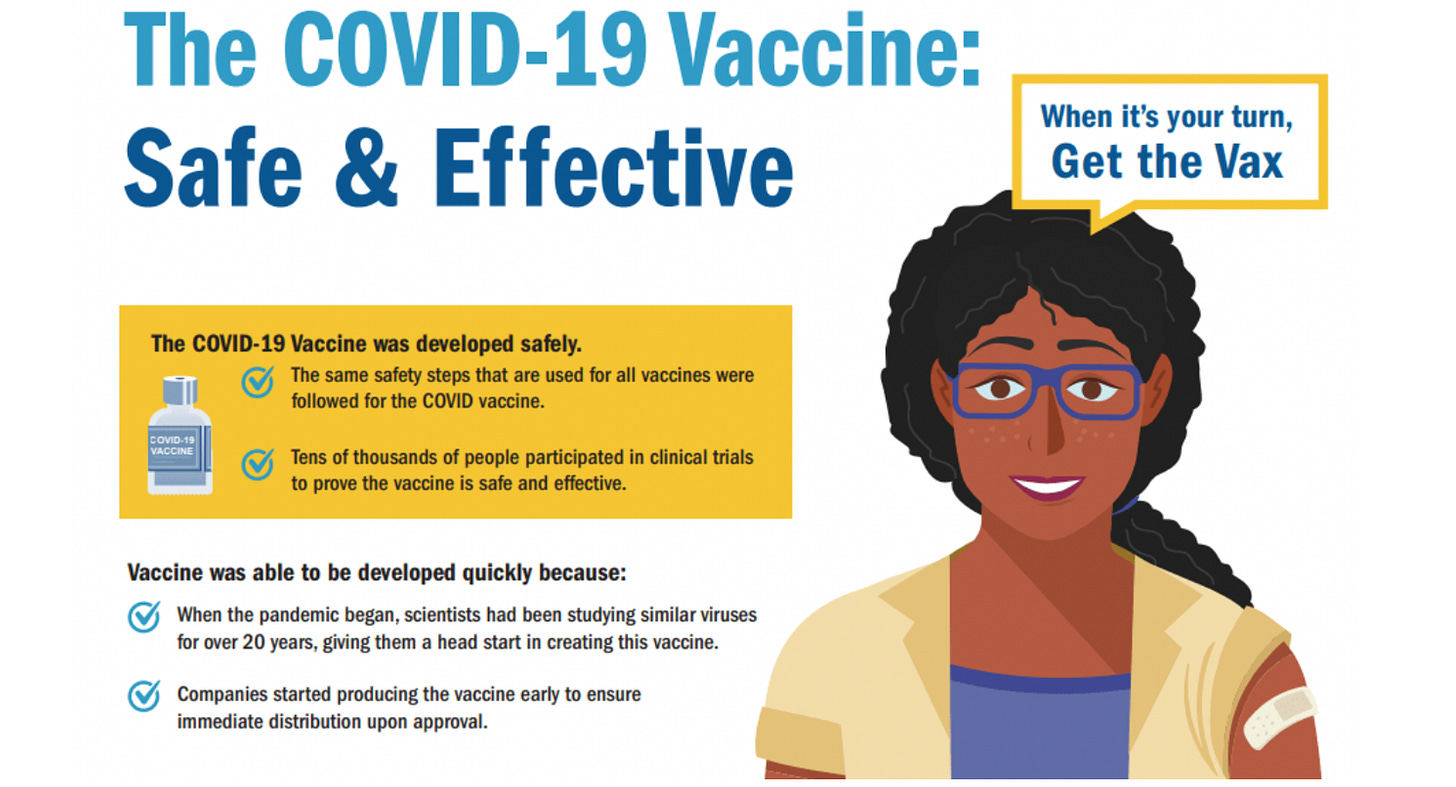Minority reports
Voices for truth from the past and present
During the last few years, when I have presented evidence for what I think is going on, I have encountered a variety of responses. Among them has been the apparent dismissal of what I am saying as a mere “minority report”, which I take to mean the view of a small group or and individual standing against the majority opinion.
Leaving aside here whether what I have been saying is correct, in this post I will outline some “minority reports” from relatively recent history and then share some brief reflections on the situation today, illustrated by a current example.
Minority reports from relatively recent history
By relatively recent history here, I mean the past couple of centuries.1 Such a timeframe offers plenty of examples to choose from, and these are but a mere sample of some of the more well-known.
It is not necessarily easy for us to imagine that, in each of these cases, there really was a time when what is now mainstream opinion was actually a very long way from the majority view. But this should remind us that a day will come when it will be hard to imagine that anyone ever seriously questioned some of today’s “minority reports”.
In each example here I have merely listed the view that was once a minority report, along with one or more of the people who opposed the majority opinion of their day.
History
Slavery is wrong and should be abolished (William Wilberforce)
All adults, including women, should be allowed to vote (Chartists, suffragettes)
Apartheid is unacceptable (Nelson Mandela, Desmond Tutu)
War
Hitler should not be appeased (Winston Churchill)
Going to war in Vietnam is a historic mistake (the two US Senators who voted against the 1964 Gulf of Tonkin Resolution)
It is unwise to go to war in Iraq without international agreement or domestic support (Robin Cook)
Science
The general theory of relativity makes more sense of the reality of what we observe (Albert Einstein)
The continents were once joined together and are slowly drifting apart (Alfred Wegener)
DNA plays a central role in genetics (Oswald Avery, Colin MacLeod, Maclyn McCarty)
Health
The area of health has proved particularly fertile ground for “minority reports” that have eventually proved to be correct:
Good sanitation can make a massive difference to health outcomes (Florence Nightingale, Ignaz Semmelweis)
Cholera is spread through contaminated water rather than via “bad air” (John Snow)
Asbestos poses severe health risks when its fibres are inhaled (Montague Murray)
Smoking cigarettes is damaging to health (Lennox Johnston)
Thalidomide causes birth defects (Frances Kelsey)
DDT is hazardous to health and the environment (Rachel Carson)
Leaded petrol results in harmful long-term effects, particularly on children (Clair Patterson)
Stomach ulcers are caused by bacteria rather than stress and lifestyle factors (Barry Marshall and Robin Warren)
Excessive sugar is a bigger contributor than dietary fat to heart disease, obesity, and diabetes (John Yudkin)
Bisphenol A (BPA), which is used in the manufacture of plastics, can disrupt hormone function (Ana Soto and Carlos Sonnenschein)
It is hard to imagine now, but in the 1950s it was normal for doctors to recommend thalidomide to treat morning sickness. And for construction companies to endorse the use of asbestos in public buildings. And for health authorities to advocate spraying children with DDT.
For their health.
These are things that actually happened. With the approval of the majority of the “experts” of their day. And it was not actually so very long ago — there are plenty of people still alive who can remember such things.
It might be tempting to think something along the lines of “mistakes were made, but science has moved on, and things are better now”. But I suspect that that is how people have always thought. And it is the height of hubris to think that we could not be making similarly bad (or even worse) mistakes today.
And I suspect that future generations will find it hard to imagine how the mistakes of the 2020s happened as they did.
Minority reports from the last few years
Many similarities
The above examples illustrate a long history of minority reports where a small group or an individual stood against the majority opinion and was ultimately vindicated. There are many examples where what we now think of as mainstream opinion was once a minority view.
Of course this does not mean that every minority report is correct. But it is does at least suggest that dissenting opinions should be carefully considered, and preferably with an open mind (insofar as that is possible).
I wonder whether, in the last few years, the number of dissenting voices has reached an all-time high. There are certainly plenty to choose from.
An important difference
On one level, it could be argued that there is nothing new under the sun. The fight against powerful vested interests is certainly nothing new. And neither is the unwillingness of many people to consider evidence, to think carefully, and to change their minds.
But one important difference today is that anyone with an internet connection can easily follow those questioning the mainstream consensus and engage with what they are saying. And in my experience, those who do engage with such people — usually on alternative media platforms rather than via mainstream media — tend to be much better informed about what is actually going on in the world.
A current example
By way of a current example, there were credible voices outside the mainstream media raising serious questions about the Lucy Letby trial more than a year ago.
While the overwhelming majority of mainstream media coverage looked like this…
…articles such as this one from The Daily Sceptic and this one from Unity News Network were challenging the received wisdom. And, as far as I can tell, alternative media accounts such as Rex v Lucy Letby — Full Disclosure and The Trials of Lucy Letby have done a much better job than any journalist from a mainstream news outlet.
As has the Law, Health and Technology Newsletter (on Substack). This recent article — How unusual was the spike in neonatal deaths when Lucy Letby was working? — is from two London-based academics who claim to show, “using data available to police, barristers, the court and journalists at the time… that, from a strict probabilistic view, there was nothing unusual about the number of neonatal deaths”.
It should surely concern us all when preprint servers2 refuse to accept such analysis.
[Update: a follow-up article, featuring Prof Fenton, is now available here]
Which does of course rule out some of the most famous examples, e.g. Galileo
Such as arXiv (pronounced “archive”), “a free distribution service and an open-access archive for nearly 2.4 million scholarly articles in the fields of physics, mathematics, computer science, quantitative biology, quantitative finance, statistics, electrical engineering and systems science, and economics” where “materials… are not peer-reviewed by arXiv”; or medrXiv, “a platform for posting preprints of health-related research that have not been peer-reviewed







